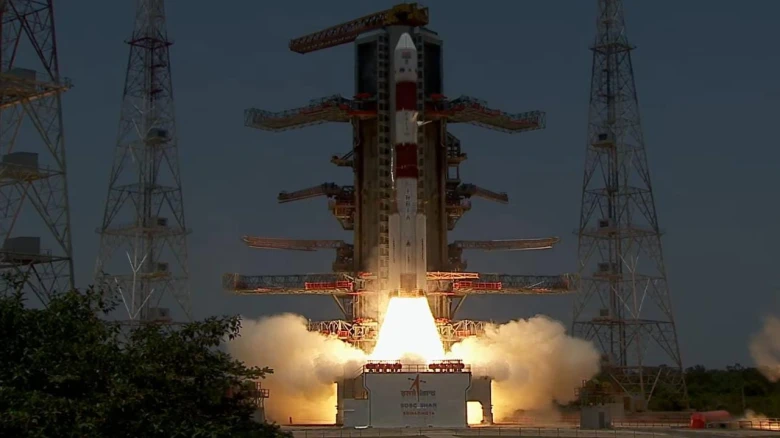Regional

Following the success of India's moon landing with Chandrayaan-3, ISRO launched the Aditya-L1 mission to explore the sun today...
Digital Desk: In yet another remarkable achievement, the Indian Space Research Organisation (ISRO) has set its sights beyond the Earth's orbit, launching the Aditya-L1 mission to explore the enigmatic sun. Following the resounding success of India's Chandrayaan-3 lunar mission, the nation is now embarking on its first-ever solar probe, aiming to unravel the mysteries of our closest star.
The Aditya-L1 mission, named after the revered Hindu sun god, signifies India's prowess in the field of space exploration. With this venture, India joins the elite group of nations actively engaged in studying the sun, a celestial body that has fascinated astronomers and scientists for centuries.
Solar Winds and Earth's Auroras under the Microscope
At the core of the Aditya-L1 mission's objectives is the study of solar winds, which originate from the sun and can have a significant impact on Earth's geomagnetic activities. Solar winds are responsible for the mesmerizing natural light displays known as auroras, which are often observed near the Earth's poles.
Understanding solar winds is crucial for space weather forecasting, as these high-speed charged particles can interfere with satellite communications, power grids, and even aviation systems. The Aditya-L1 spacecraft is equipped with advanced instruments to monitor and analyze solar winds, providing valuable data to help predict and mitigate the effects of space weather on our planet.
India's Lunar Triumph Fuels Ambition
The launch of the Aditya-L1 mission comes on the heels of India's historic achievement in lunar exploration. Last month, India outshone Russia in a closely watched lunar landing race, becoming the first country to successfully touch down on the treacherous south pole of the moon. Despite Russia's more powerful rocket, India's Chandrayaan-3 demonstrated remarkable endurance, executing a flawless landing that captured the world's attention.
This accomplishment solidified India's reputation as a formidable player in the global space race, boosting ISRO's confidence to venture into new frontiers of space exploration.
Aditya-L1's Path to the Stars
The Aditya-L1 spacecraft is poised to travel approximately 1.5 million kilometers (930,000 miles) over the course of four months. Its journey will take it to a unique "parking lot" in space, a stable point known as the Lagrange Point 1 (L1), where gravitational forces balance, allowing objects to maintain a relatively fixed position in relation to the Earth and the sun. This strategic positioning reduces fuel consumption for the spacecraft, optimizing its ability to carry out prolonged observations of the sun.
With the Aditya-L1 mission, India is taking a significant stride in solar science, contributing to humanity's understanding of the sun's dynamics and its impact on our planet. The mission not only underscores India's technological prowess but also highlights the nation's commitment to advancing our knowledge of the cosmos.
As Aditya-L1 embarks on its journey to unlock the sun's secrets, the world eagerly awaits the groundbreaking discoveries and insights that this mission promises to deliver, reaffirming India's position as a key player in the realm of space exploration.
Leave A Comment